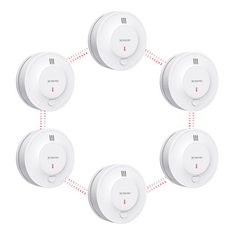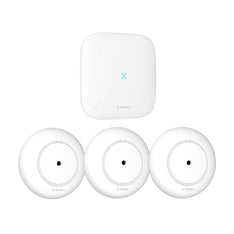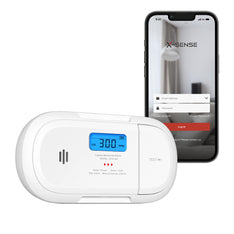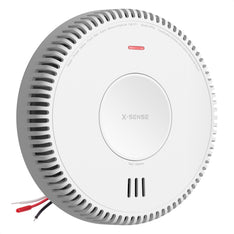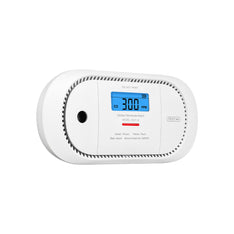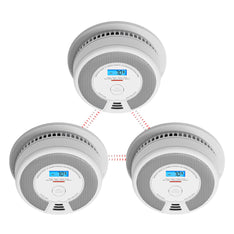The Difference Between Smoke Detectors and Heat Detectors
Mon, Feb 13, 2023
Both smoke detectors and heat detectors are used to detect fires. When one of the sensors is paired with the alarm system, it will send an alert to the panel when activated. This action will generate an alert event on the system. This triggers all sirens and sirens, alerting everyone.
The difference between smoke detectors and heat detectors is how they are activated. Smoke detectors activate when they detect smoke, while heat detectors activate when they detect high temperatures or an unusually rapid rise in temperature. In most cases, a smoke detector will detect a fire faster than a heat detector. But in some cases it is better to use a heat detector. But in most cases, a smoke detector will just work. There are also combination smoke and heat detectors that provide both functions.
Why do I Need Both Alarm and Detector in My Home?
You may be wondering why you need both smoke detectors and heat alarms in your home. The answer is because the two types of alarms offer different protections to the homeowner or landlord who installs them. There are two main types of fire alarms, heat alarms and smoke alarms. The difference between the two is that smoke detectors are triggered when they sense smoke, while thermal sensors go off when they detect high temperatures.
What is a Smoke Alarm?
Smoke alarms are a must in every home. They can detect the presence of smoke and alert you with an audible signal, making them an invaluable resource for detecting home hazards and providing protection for your family.
Ionization vs. Photoelectric Detectors: Which Type of Smoke Alarm is Better?
Smoke alarms rely on detection sensors to identify the presence of smoke particles. They are of two types, ionization or photodetectors. Ionization alarms have a sensor that detects the presence of smoke particles in the air and are triggered by their electrical charge. Photoelectric alarms detect visible light, as well as ultraviolet wavelengths produced when heated materials emit invisible infrared energy.
It's safe to say that every home should have a photoelectric smoke detector. While ionization smoke detectors have been shown to be more effective at detecting burning fires, photoelectric alarms outperform it when it is a smoldering fire.
What is a High Temperature Alarm?
As the name suggests, high temperature alarms are designed to detect sudden changes in temperature, not smoke. High temperature alarms also operate differently compared to smoke alarms. When a certain temperature is reached for a long time, a thermal alarm is triggered.
Which Thermal alarm is Better?
There are two different ways thermal alarms detect overheating: rate of rise and fixed temperature. Rate of rise alarms, as the name suggests, sound when the ambient temperature rises at a certain rate over a period of time. On the other hand, thermal alarms with a fixed temperature will sound when a certain temperature is reached over an extended period of time.
While thermal alarms with a fixed temperature are less common, the temperature ramp rate is more effective and allows the alarm to react quickly during rapid temperature changes, avoiding false triggers.
What is The Best Solution?
For this reason, X-Sense smoke and heat alarms are equipped with smoke and heat detection sensors, but only use one sensor at a time. When set to smoke detection, it will only detect smoke particles; when switched to heat detection, it will only react to changes in temperature. This is the best solution for homeowners who want to protect their homes and avoid false alarms.
Summary
- When the temperature around the smoke detector reaches a certain level, a fire alarm will be issued. Smoke detectors sound a fire alarm when they encounter burning or smoke in the atmosphere.
- Smoke detectors use ionization and photoelectric technology, while heat detectors use thermocouple and electropneumatic technology.
- Even if a small amount of smoke is detected, the smoke detector will sound an alarm. Thermal detectors, on the other hand, cannot detect even the slightest change in temperature.
- Smoke detectors are very sensitive and may give false alarms. In contrast, heat detectors are more reliable fire detectors, even in dusty environments, and only trigger an alarm when the temperature is really high.

